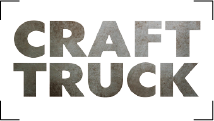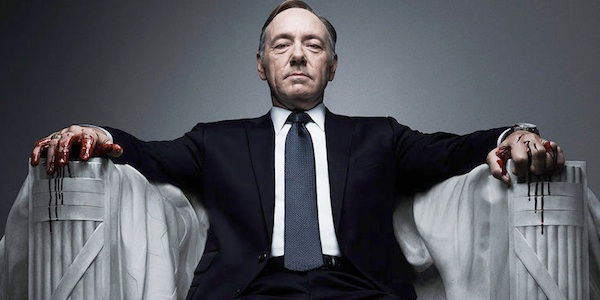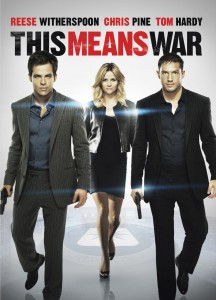Recently, Ted Sarandos, Chief Content Officer at Netflix, gave a speech at the 2013 Film Independent Forum. Despite certain controversial things that were said during the speech, there were six important take aways worth reflecting on in this truly unique time for Netflix.
As a preface to, Ted set the framework for this discussion by saying the following:
The release cycle of movies is another problem of why TV is becoming so much more prevalent in our culture. There’s been some movement in the indie space with day and date. But invariably, the big big movies that studios spend billions of dollars to sell to us still are released in almost the same way they were years ago. To theatres first for months and months. Then to DVD. Then to pay television (where Netflix can bring them in). And these antiquated windows, I think, are probably driving piracy more than anything else.
The model is shifting. Everything is changing. But there are certain things that are true, consistent, and never change. These are the foundations that have brought Netflix back into the limelight in the past year. And may keep Netflix as a major player and power house in the content space for years to come.
Here is our take away of Ted’s 6 things we can learn from Netflix:
1) Understand your buyers:
There are far more buyers that want to buy outside of the box than sellers that want to sell outside of the box.
Today is an amazing time. The traditional model of content distribution and consumption is collapsing.
However, the old guard is trying desperately to hold onto its old model. What does that mean for you? Opportunity. Understand who the current buyers are, and what the current model for getting your content distributed is. There is now more flexibility then every to get creative.
2) Deliver content in way that the audience wants to consume it:
If you give the audience what they want they will turn up. This is still something that we are trying to learn today.
Netflix has learned that the old model of television is being replaced by “binge” viewing. A term, Ted says, they tried to stay away from, but got swept along with it because that’s what everyone was calling it.
The point is that they have adapted their model to suite the way consumers wants to consume content. They aren’t forcing a model on anyone anymore. They are just putting it there for people to eat as they please.
A buffet of great content. Hard to beat a great buffet!
3) Understand risk:
Everyone is using the internet as a marketing platform. What we are trying to do is jam our windows as close to the network premier. Networks spend about $800 million on pilots that never get seen. It’s not without risk. Which, is about the same as independent film that never gets distributed.
In other words, the way television currently works makes no sense – at least to Netflix. For the independent film maker, this is a frightening thought. But the truth remains, that most independent film never finds distribution and struggles to find any kind of meaningful home.
Understanding the risk of your film, particularly from an investment perspective but also from a time and career perspective in important.
Film is not a lottery ticket. It shouldn’t be treated that way. But for some, that’s how it’s thought of. Understand the risks before you get started.
4) Package, package package:
We had three scripts. An Oscar nominated writer. And Kevin Spacey. It’s not like it was a shot in the dark. Now, not everything is this beautifully packaged…
In speaking about how House of Cards was presented to the network, it’s clear that when it came in the door, there was a pretty compelling package.
 Now, as he rightfully points out, “not everything is this beautifully packaged”. But that’s your competition. Because there was, without a doubt, another project that was sitting on Ted’s desk, right next to House of Cards that didn’t get greenlit.
Now, as he rightfully points out, “not everything is this beautifully packaged”. But that’s your competition. Because there was, without a doubt, another project that was sitting on Ted’s desk, right next to House of Cards that didn’t get greenlit.
If you’re pitching your project, you’re up against the project that’s sitting just to your left and just to your right. How good is your package? How good is the sales pitch that you are about to make? The better your package, the better chance you have at making sure the buyer must buy this project.
Consider this, do you think Ted could have said “no” House of Cards. That’s rhetorical. But if an Oscar nominated writer and actor sat across “your” desk with a killer script, what would you say? So when you bring your project to market, make it the best package you can.
4) Content is Content:
Everyone thinks about Netflix as being a part of the digital revolution. What we are doing, is television.
This is such a great point. Really what he’s saying is that content is content. You can call it what you want. Change the way it’s delivered. Change its length. Change its structure. But television is television. It’s not some new fancy thing that no one has ever done before. It’s the same as before. Same dog.
The trick is that people think its new. The market thinks its new. Netflix just recently broke $300 a share. This is on the heals of having been as low as $80 a share at the time when they where breaking up the DVD and streaming divisions.
But ultimately, their vision was the same. To deliver content. And DVD’s in the mail was just a stepping stone to what they are now. A television station. They are delivering television the same way HBO does. It’s these same thing.
But why is that important? The same reason you watch HBO. Or AMC for The Walking Dead. Because the content is great. You love Orange is the New Black, so you stick around.
They’re telling a great story. The way any television station has done. Netflix spends money to create great content; and, as a result, they win an Emmy. Great stories. Which leads to his next point:
5) Character is King:
House of Cards was built to be binged… when we sat down to talk about the show, we think about it like a 13 hour movie. If you look at the end of the second episode, he’s just sitting at a rowing machine. It’s like the anti-climax.
So why do we want to see the next episode? Because it’s about character. We love his character and we’re in. He’s got his teeth hooked in us. They could end an episode with him brushing his teeth.
The old model of leaving the audience with a cliff hanger so that we come back next week doesn’t matter. What matters is great character.
So whether you are crafting a 13 episode arc for television or a 90 minute feature film, act breaks don’t mean anything if you don’t have a great character. The best structured screenplay in the world will still feel empty without great character.
In every new wave of technology there is a war. That thing that is coming along that is going to kill that old thing. The keeper of the old thing is going to dig it.
Remember Beta vs. VHS? That was a great war. There were wars before. There were wars after (i.e. DVD vs. VHS) and now it’s disc vs. the internet. And soon it will be the internet and digital delivery on any platform, served up hot, just the way you want it when you want it vs. theatre owners and television networks.
Make no mistake, Netflix knows this. Netflix hasn’t been crowned king. They’ve passed HBO. They have 40 million subscribers the world over. Do you think their rivals are going to throw in the towel?
Hulu. Amazon. HBOGO… the list goes on.
These are but three names of a very very long list of competing companies. And it’s not just the big boys and girls at the table either. There are smaller platforms and players that want to help you get eyeballs onto your content.
We are in the middle of a war. And this war means tremendous opportunity because these players need content. They need GOOD content. And if you can supply good content, then refer back to #1 above – “There are far more buyers that want to buy outside of the box than sellers that want to sell outside of the box.”
Other links you may enjoy:
3 Thing you need to know about distributing your film.
Producing with Neal Dodson & Corey Moosa (All is Lost, Margin Call)
Producing with Nicholas Tabarrok (The Art of the Steal, Defendor)
If you enjoyed this post, get more Producing info (it’s free)


